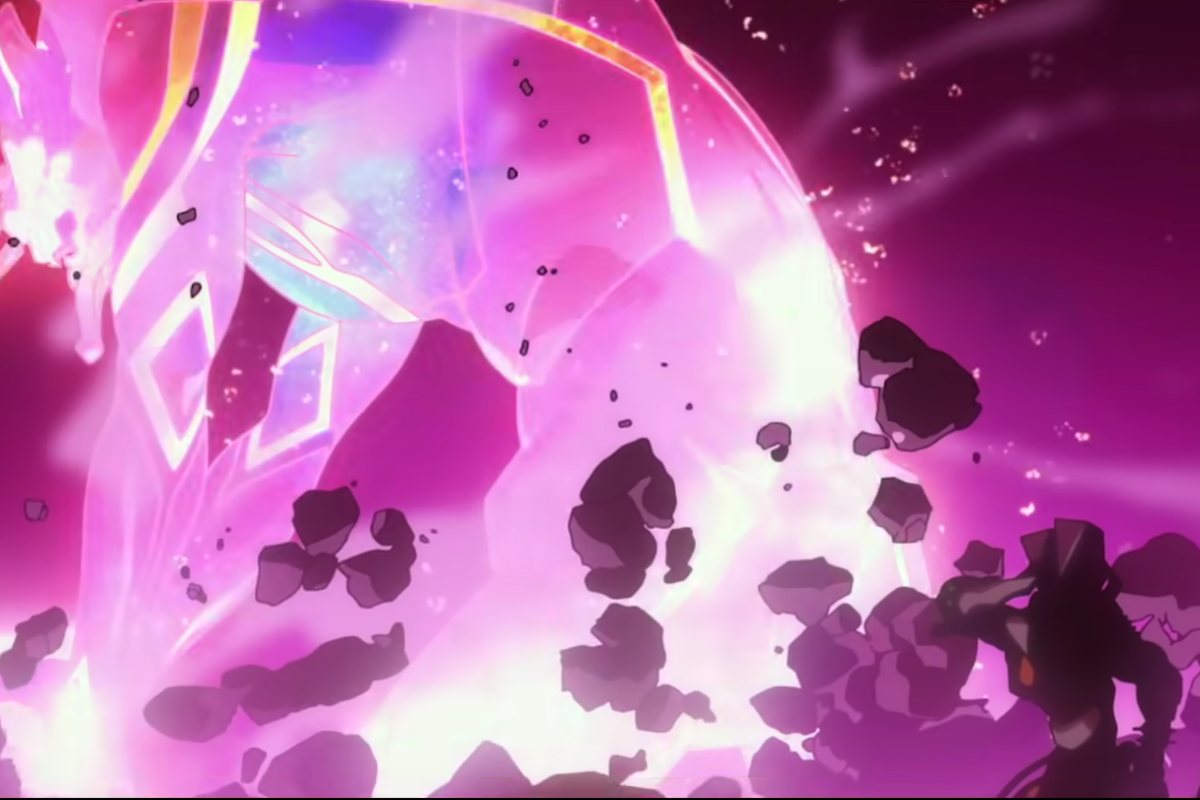Evangelion: 3.0 +1.0 Thrice Upon a Time, the final film in the tetralogy released in Japan on March 8, 2021. International audiences have finally been able to watch the movie on movie-streaming platform Amazon Prime Video from August 13, 2021.
With the tetralogy that spans 14 years finally coming to a close, has the creator of the franchise, Hideaki Anno, delivered a satisfying finale?
Evangelion: 3.0 +1.0 Thrice Upon a Time can be cleanly split into two halves.
The first half follows the protagonist Shinji Ikari and his friend’s experiences in a village populated with the Third Impact survivors, while the second half focuses on the climatic battle against the movie’s antagonist, Gendo Ikari.
More action-loving fans would perhaps find the first half of the movie dull, but there is a joy that can be found here.
After learning the consequences of his actions in the previous film, Shinji is more or less in a paralyzed state. He is both coming to terms with the result of his actions, while also struggling to figure out what to do out of fear of what his actions would bring.
Trapped within this state, it is only fair that Evangelion: 3.0 +1.0 Thrice Upon a Time would allow Shinji time to experience all the pent-up emotions that he holds.
Another important thing that Shinji realizes in the first half of the film is that the world does not revolve around him. He realizes that while what he did was disastrous, ultimately, people move on, even finding new hope and joy along the way.
Misery is not a constant. Not everything that we do can ruin things for eternity.
The Evangelion movies are famous for the way they portray the pain of living and the misery that human connection can bring.
This misery, however, does not simply come from people’s cruelty, but rather due to intersecting and contradicting wants at the heart of humanity, how our own desires can sometimes come into conflict with other people’s desires.
This dark portrayal is made even more vivid with Anno connecting much of his own real-life experiences and his own struggles with the work.
But at its heart, Evangelion has always been an optimistic work. As brutal as it can be when it comes to depicting the human connection, the franchise also believes in how all of us can find happiness if we try to engage with the world.
This optimism can be seen in the first half of Evangelion: 3.0 +1.0 Thrice Upon a Time, where, beyond Shinji’s recovery, the movie focuses on the simple joy of living.
The movie shows this joy in simple gestures such as saying “Thank you” and “Good morning”. It shows how even sweating after a long day of work can be fun in its own right.
The first half of Evangelion: 3.0 +1.0 Thrice Upon a Time shows that happiness does not necessarily have to come through life’s biggest milestones such as marriage or promotion.
Little gestures in life that we take for granted can be a joyful revelation, too.
Related news: Dark future to twisted affairs --- must watch new releases on Netflix
After the first half, the movie barrels into climactic world-changing conflict against Shinji’s father, with each member of the cast eager to return to the happiness of their old life.
For this part of the film, Anno and his team at Studio Khara went all out. Beautiful art composition abounds and glorious depictions of mecha fights, both 2D and CG, fill the screen and keep the audience at the edge of their seats.
However, the most surprising part of the second half is the way the movie provides a more or less positive conclusion for most of the major cast.
Characters make amends with their decisions and even find happiness with the way things are.
If there is a flaw in this film, it is perhaps the logistics of Gendo’s plan in its entirety.
The actual plan itself is understandable. Gendo wanted to create a utopia where everyone can be free from the misery of connection and be reunited with their lost love.
Evangelion 3.0 +1.0 Thrice Upon a Time essentially portrays Gendo as a darker reflection of Shinji. He is someone who has rejected the world so much that he wants to make it anew.
However, the actual mechanism of how he intends to realize that goal is not explicitly clear. Some audiences may just ride along with the emotions of the characters, but the lack of clarity on Gendo’s plan may make it hard for some to connect with the movie.
In addition, perhaps this is just personal preference, the movie is ultimately a rehash of the ending of the original Evangelion. While the conclusion that the movie delivered was fine enough, perhaps a more original ending would have been better.
All said, however, Evangelion: 3.0 +1.0 Thrice Upon a Time is a worthwhile conclusion to the Rebuild of Evangelion, and, by extension, the Evangelion franchise as a whole.
After the harrowing horror of change that the third Rebuild film depicted, the final film serves as a joyful reminder of why we live, despite the pain all of us go through in the process.
Related news: No cinema, no problem: Films to watch from home in 2021
Related news: ANTARA's Top 5 worth-watching food and culinary shows
Editor: Yuni Arisandy Sinaga
Copyright © ANTARA 2021











